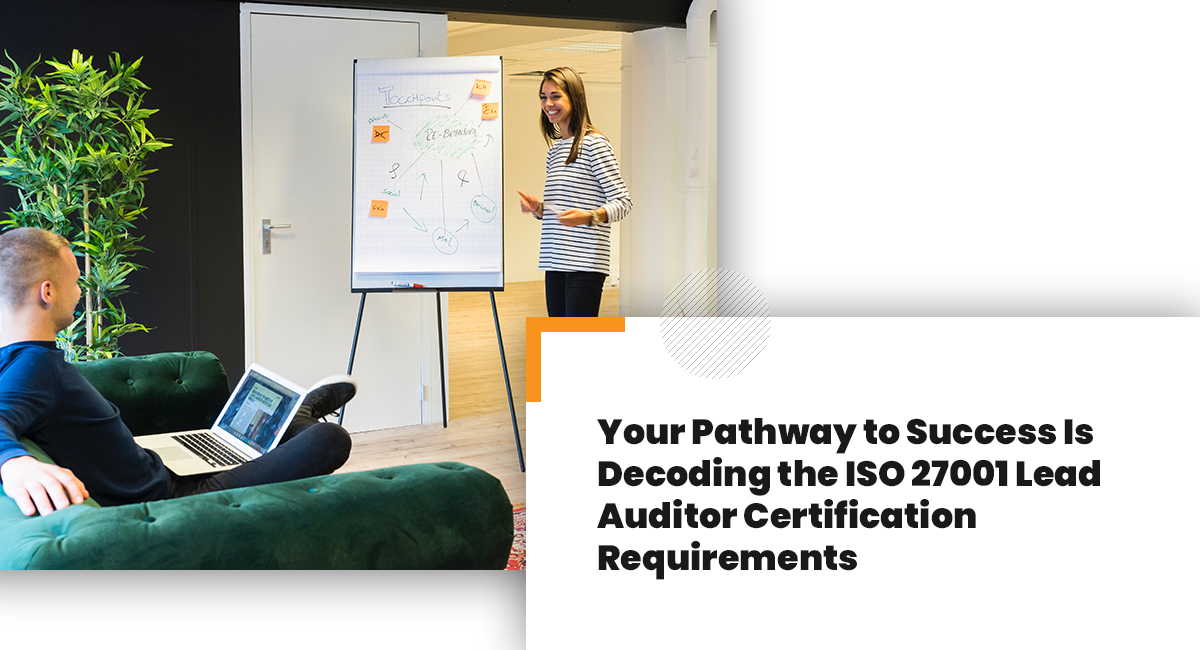
An ISO 27001 lead auditor is responsible for organising systematic meetings and reviews programs to inspect, evaluate, and discuss the objectives, policies, scope, and the entire course of an audit. Before conducting the entire program, a detailed discussion is crucial to determine what should be prioritised. The career prospect of a lead auditor is high both domestically and internally. On the other hand, an increasing number of cyber-attacks and third-party infringements on sensitive records, harm the reputation of thousands of companies. The ISO 27001 is therefore not just another standard, it is a necessity for holding the sustainability of a business.
The pivotal role of lead audit specialists encompasses three precise stages: planning, conducting the audit, and reporting the audit results. The professional is expected to ensure a streamlined process so that the management and the stakeholders proactively participate. To ensure compliance at each stage, an auditor needs to have the proper knowledge and relevant industry experience. The two main criteria are certification and experience. To become an adept expert, one must opt for the certification course first.
There is a distinct set of ISO 27001 lead auditor certification requirements, which one must comprehend before pursuing the career path. The following blog has demystified the required steps for becoming a lead auditor for the information security management system. Before divulging deep into the process, the blog discusses the primary duties of the ISO 27001 lead audit specialists.
Three Main Duties of The ISO 27001 Lead Auditor
Planning – Before conducting an assessment, an audit lead must determine the resources. To design an audit checklist, a company needs management documents and efficient team members. Leadership, commitment, and existing records are three key aspects of a rewarding audit. A lead auditor is supposed to classify all the necessary components in this phase. He or she must design a timeline and design a plan for streamlining every hook element. The audit lead is expected to generate awareness among the stakeholders so that they can share their valuable opinions while designing an effective checklist for performance evaluation.
Audit – The second and most pivotal phase is conducting the audit. The audit is performed in four steps – introduction, auditing, evaluation, and closure. In the first step, through stakeholder meetings, the schedule is reviewed. Next, the checklist is used to question the individual stakeholders. The lead auditor is supposed to monitor, inspect, and analyse the performance of the applied process and controls. The last step is determining whether the information security management protocols are meeting the expectation level or not.
Audit Reporting – The third and last duty of the lead auditor is to make a report out of the audit. An audit report is likely to consist of pivotal information on the organisational profile, roles of the allocated members, timespan, and details regarding compliance and non-compliance. As a leading member, it is one of the duties of the expert to design resolution strategies based on the identified gaps.
ISO 27001 Lead Auditor Certification Requirements
There are two types of audit training available for the ISO 27001. The first one is the basis of internal audit training, which has a shorter deadline. The second one is the lead audit training program, which is a lengthy process. During the training process, a candidate is supposed to learn the following:
• Learning to conduct on-site activities
• Communication techniques
• Understanding the audit team’s responsibilities
• Reporting audit techniques
• Report/documentation techniques
The Steps/criteria to becoming a lead auditor
• Lead audit certification – For this, one must enrol on the Auditing course, complete it, and pass with distinction.
• Experience – Once you receive the certificate, you start practising. For a strong and lucrative portfolio, one must attend different audit programs.
• Certification – The third and crucial step is getting the certification. The accreditation is given based on the candidate’s abilities and potential.
• Training program – For joining the ISO 27001 audit team, you must go through precise training. The training program lasts for one month. A candidate gets to learn about the auditing process, how to make the checklist, and initiate documentation.
• Final audit experience card – After gaining enough experience and completing the training program, a candidate is now eligible to get the experience card. He or she has acquired enough experience in performing various steps of the ISO 27001 audit. The experience card allows the professional to get better projects in the coming days.
Contact us at ComplianceHelp to know more about the ISO 27001. We are Australia’s premier site for achieving any ISO certifications. Our bespoke solutions for the ISO 9001 or the AS9100 accreditation are ready to guide you through the exhausting process of certification without any difficulties. If you wish to learn more about the ISO 27001 lead auditor certification requirements, then we have answers for that as well.

Get connected with us on social networks!